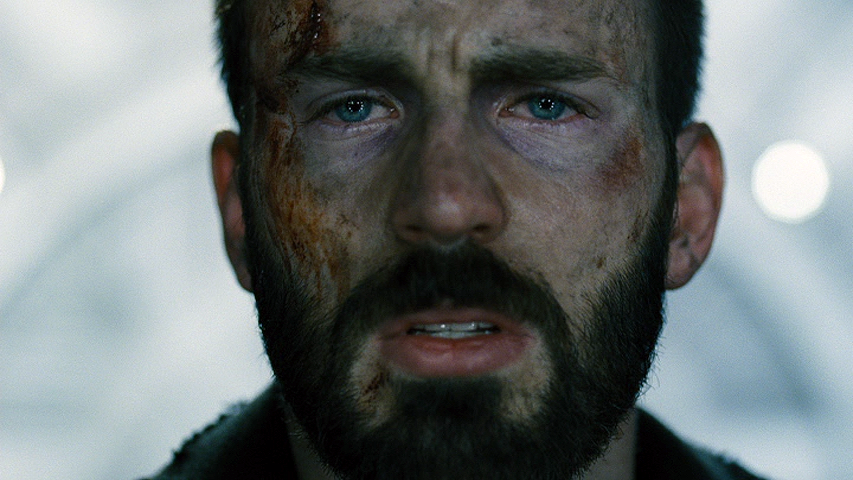Snowpiercer is a totalizing visual obsession with returning one’s gaze to the symmetrical features of, the gleaming blue eyes of, every bristle of hair on American actor Chris Evans.
To watch Snowpiercer is to enact the “concentration, immensity and intensity” of a timeless Hollywood masculine archetype, a man “[j]ust tall and handsome enough, just manly enough, good with his hands, nonjudgemental, with intelligent eyes and a rich sonorous voice, shivering, cold, vulnerable, needy, beaten to shit and crying.”

The Koreans who created this picture – as Me and Earl and the Dying Girl showed, Koreans are working on another plane of cinematic existence – would be expected to direct such adoration at a blond or a ginger, two somatotypes unknown in their land. But not even with fair delicate Jamie Bell do they do that. Snowpiercer is a hindbrain obsession with finding an excuse to look at Evans’ face over and over again, and, implicitly, an obsession with how that face diverges from Koreans’. An exemplar of the narcissism of small differences, Chris Evans is as Kim Novak to Hitchcock.
If my analysis stretches the bounds of credulity, you must be an heterosexualist male. Cinema is not all about you. Besides, I can prove it.